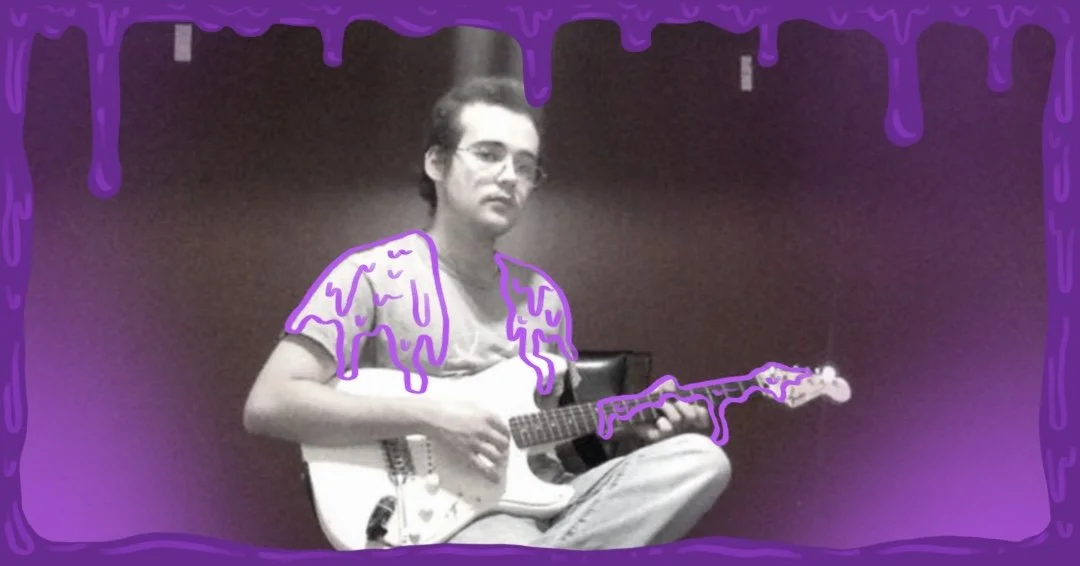Artist Profile: Jamison Field Murphy
Jamison Field Murphy, also a guitarist and vocalist for Tomato Flower, launched a solo venture earlier this year under his own name which compiles over a decade of tape-recorded bliss, signifying the formation of a cohesive body out of the depths of his usual collaborative process.
The album, “It Has to End”, not only recovers much of this material for innovative purposes but also contains a sort of imbedded nostalgia which bleeds through its tape-oriented sonic landscape.
“I could have released a solo album a long time ago, but [my bands] would sort of absorb the better songs. And that happened for years and years until I amassed so much that really wasn't appropriate or just never worked in a band setting that I could call it a solo album.”
Murphy’s decade of creative ventures are represented beautifully on the project. From his time plucking folk tunes in Savannah, Georgia to his deployments with various bands in Baltimore, Maryland, Murphy’s musical tastes have evolved, establishing the foundations for the indelible magnitude of “It Has to End”.
He credits the flourishing underground Noise and Experimental scenes in Baltimore for expanding these horizons for him, helping him to understand the various ways through which sound can inhabit and embody space.
The ambient pieces on “It Has to End” are, in a way, manifestations of this understanding on a spatio-temporal level; the 12th song on the album, “True Friend”, combines several recordings from separate years in order to create a corporeal unity.
Murphy, a PhD student in literature, also possesses a deep appreciation for the capabilities of words to augment sound. However, although he admits his understanding has changed over time, states that literature’s relation to his songwriting is, at most, adjacent.
“When I learned more music theory, I started to have this very formalist mentality… Where it's like okay, actually, music is supposed to be sort of this formalist field of play, where linguistic expression is obviously there, but it's subordinated to sound and it's not the primary concern. In the past five years, I've come back a little bit to more intentionality with lyrics… though I do think the bearing is indirect.”
This is not, however, an indictment of his lyric-writing capabilities; it is an embodiment of the true measure to which Murphy takes the vastness of his sound seriously, crafting experiences in multitudes rather than individually contained compositions.
As he continues to pursue this solo project, he hopes to create music that is simultaneously “better and more uncompromising”: music that continues to explore the balance between experimental and pleasurable, haunting and warmly nostalgic.
He admits that there is a temptation to release his entire archive indiscriminately, placing his years of work in the public eye, but ultimately wants to take a more intentional direction, gradually crafting more “scaled-up” and “ornate” pieces.
From the indie-rock sounds of Tomato Flower to the ambient pop fusion of his solo venture, Murphy presents, in short, an impressive corpus which has found its finest manifestation in “It Has to End”, a manifestation which will evidently continue to grow and evolve in the coming years.

